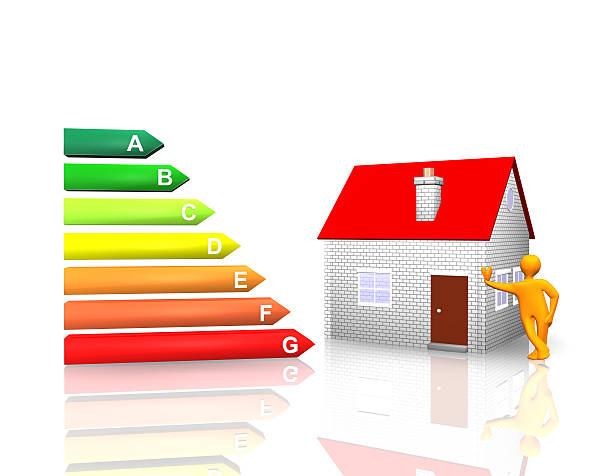Upcoming EPC & MEES Changes: What They Mean for UK Homeowners & Landlords
The UK government is introducing stricter energy efficiency regulations, and landlords, homeowners, and tenants must prepare for the impact. The new Minimum Energy Efficiency Standards (MEES) will raise the required EPC rating for rental properties, affecting property values, rental prices, and compliance costs.
These new requirements could significantly reshape the housing market, influencing house prices, rental demand, and investment decisions. Whether you own or rent a property, understanding these changes is essential to avoid unexpected financial consequences.
What Are EPCs & MEES?
Energy Performance Certificates (EPCs)
An EPC is a document that rates a property’s energy efficiency from A (most efficient) to G (least efficient). It provides recommendations on how to improve the home’s performance, making it cheaper to run while lowering carbon emissions.
For homeowners and landlords, an EPC serves as an important benchmark, influencing property prices, mortgage options, and rental appeal. Buyers and tenants increasingly factor in EPC ratings when choosing a property due to rising energy costs.
Minimum Energy Efficiency Standards (MEES)
MEES regulations were first introduced in 2018 to ensure rental properties meet minimum energy efficiency requirements. Currently, rental homes must have an EPC rating of E or above, but these rules will soon change, demanding greater efficiency from landlords.
What’s Changing in 2025?
The government is planning stricter MEES rules, requiring all rental properties to achieve a minimum EPC rating of C by 2028.
Key Changes
2025 – New EPC metrics will be introduced, focusing on insulation performance, smart readiness, and heating system efficiency. 2026 – The validity of EPCs will be reduced from 10 years to 5 years, meaning more frequent assessments for properties. 2028 – Landlords must ensure all rental properties meet an EPC rating of C or higher.
Failure to comply could result in fines of up to £4,000 per property, creating significant pressure on landlords to upgrade older, less efficient homes.
How Will This Affect Property Prices?
For Homeowners
Energy-efficient homes will become increasingly valuable as buyers prioritise properties with lower running costs. Homes with poor EPC ratings may struggle to attract buyers, leading to reduced sale prices and longer selling times. Mortgage lenders may start favouring energy-efficient properties, making it harder to secure financing for homes with lower ratings.
For Landlords
Upgrading rental properties to meet the new EPC rating could cost between £10,000 and £15,000 per property. Non-compliant properties may become difficult to rent, forcing landlords to either sell or invest heavily in improvements. Energy-efficient rental homes will be in higher demand, allowing landlords to charge premium rents as tenants seek lower bills.
These changes will inevitably impact the rental market, with some landlords deciding to exit the sector altogether rather than pay for costly upgrades. As more properties undergo energy improvements, renters may also see differences in monthly costs, favouring homes with higher EPC ratings.
What Does This Mean for You?
If you are a homeowner, improving your EPC rating before the regulations take effect could increase your property’s resale value and attract buyers who prioritise efficiency.
If you are a landlord, upgrading your rental property before 2028 will help you avoid fines while ensuring your property remains desirable for tenants looking to save on energy costs.
As energy prices continue to rise, these new regulations will shape future housing trends, making it crucial for landlords and homeowners to act now rather than risk financial penalties or decreased property appeal.
Preparing for the New EPC & MEES Regulations
Research energy efficiency improvements for your property, focusing on insulation, heating systems, and renewable energy solutions. If you are a landlord, request an updated EPC to identify areas for improvement before the regulations take effect. Consider financing options for upgrades, including government grants and green energy incentives. Stay informed about potential exemptions and alternative compliance measures to reduce financial impact.
Final Thoughts
The upcoming EPC and MEES changes will significantly impact the housing market, with stricter regulations forcing landlords and homeowners to improve their properties. As a result, we may see a shift in property values, rental pricing, and mortgage availability, making early preparation key to avoiding risks.
Act Now to Stay Ahead
Whether you are selling, renting, or buying, understanding the new EPC and MEES regulations will help you make informed decisions in the property market.

